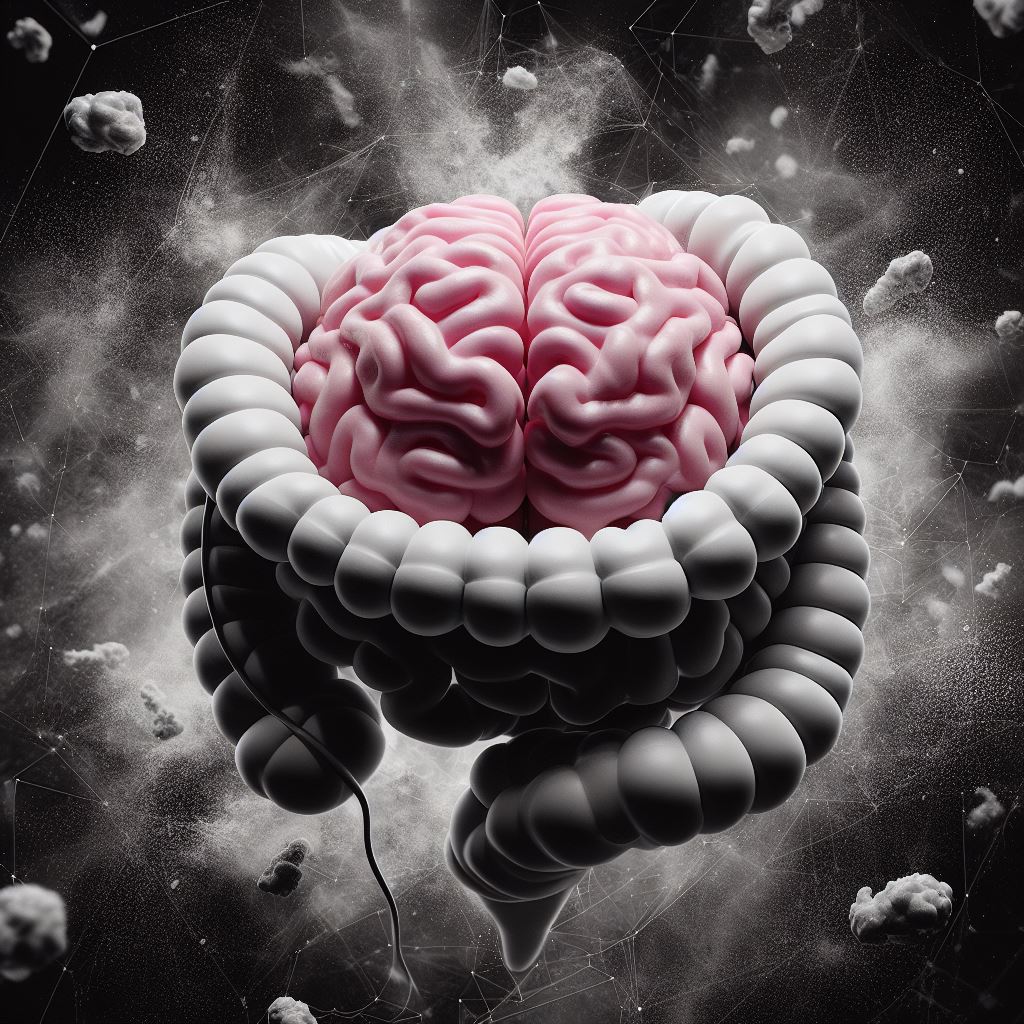The Lamen
Inflammatory bowel disease (IBD), Explained

Inflammatory bowel disease is characterized by alternating periods of flare-ups and remission of the intestine. However, the disease isn’t just a consequence of an unhealthy gut — it’s linked to the complicated gut-brain axis.
Photo: Bing Image Generator
Inflammatory bowel disease (IBD) defies definition, primarily because it’s a tale of two disruptive diseases that are nefariously complex with an ever-evolving understanding. Simply said, science hasn’t been able to explain what causes the disease.
The name “inflammatory bowel disease” seems like a simple enough explanation for the condition — inflammation in the bowel. However, it is an umbrella term for two conditions that affect the intestines: ulcerative colitis and Crohn’s disease.
In this article
Symptoms for both conditions are often the same: abdominal pain, diarrhea, and alternating periods of flare-ups and remission. However, each type of IBD damages the body in different ways.
- Ulcerative colitis affects the inner lining of the colon. It is continuous inflammation of the colon.
- Crohn’s disease, on the other hand, can occur anywhere in the digestive tract — between the mouth and the anus. It causes inflammation in some parts while others remain healthy.
Our limited understanding of the condition also makes diagnosis and treatment problematic.
Symptoms of IBD
Symptoms of IBD are on a spectrum — some experience mild symptoms, while others can experience severe bleeding.
For ulcerative colitis, common symptoms include:
- bloody diarrhea
- blood in stool or bleeding from the rectum
- abdominal pain, cramping
- passing mucus with your bowel movements
- a constant urge to poop
People with severe ulcerative colitis could experience fatigue, fever, nausea or vomiting, and unintended vomiting.
For Crohn’s disease, the most common symptoms include:
- diarrhea
- abdominal cramping and pain
- unintended weight loss
Severe Crohn’s disease can cause some less common symptoms, including:
- anemia
- fever
- eye pain or redness
- fatigue
- joint soreness or pain
- red, tender bumps on the skin (sores)
Approximately 10 percent of all IBD cases exhibit the symptoms of both ulcerative colitis and Crohn’s disease — known as indeterminate colitis.
Possible causes and risk factors
Scientists have been engaged in debating the good and bad of inflammation for centuries. Research has shown low-level inflammation — that without infection or trauma — can have significant health benefits, but what’s there to hold it down?
Inflammatory bowel disease is, by nature, a result of uncontrolled inflammation in the body. However, scientists have found multiple factors that might be behind these recurring episodes of inflammation.
- Genetics are linked with an estimated 5 to 20 percent of IBD cases, with over 160 such genes identified. The genetic risk of developing IBD is greater if a parent, child, or sibling also has the condition.
- An overactive immune system results in inflammation. Some people can develop inflammatory disorders due to environmental and genetic factors, which may lead to inflammatory bowel disease.
- An altered gut microbial composition is often associated with IBD. These bacteria are known to induce an anti-inflammatory response, and an imbalance could lead to gut inflammation.
Some more obscure theories have also blamed other factors, such as gravity, as contributing to the development of IBD.
Inflammatory bowel disease lacks treatment, but managing the symptoms can provide some relief
IBD is an incurable cluster of symptoms that has defied almost every attempt at treating it. Treatments are centered around providing relief and require understanding the unique factors that are affecting each patient.
Treatment can involve:
- anti-inflammatory drugs
- immunosuppressant drugs
- anti-diarrheal medications
- antibiotics
- biologics
Taking fiber supplements, prebiotics, vitamins, and minerals can also help with reducing symptoms and managing nutritional deficiencies. Similarly, avoiding inflammatory foods such as dairy and whole grains can also help.
If an IBD patient experiences some complications, they might require surgery.
- About 25 to 35 percent of ulcerative colitis patients ultimately require surgery. The standard surgical procedure is proctocolectomy — which removes both the colon and rectum.
- An estimated 75 percent of people with Crohn’s disease eventually require surgery — primarily due to complications like intestinal blockage, excessive bleeding, or the formation of a fistula or abscess.
While being in remission can give people short-term relief from the symptoms of IBD, the risk of relapse still exists. This can affect the patient’s quality of life, leaving them more susceptible to psychiatric disorders like depression or anxiety.